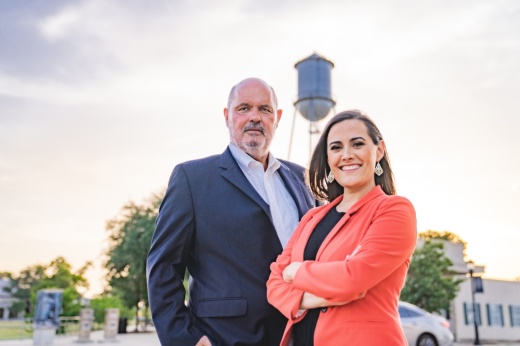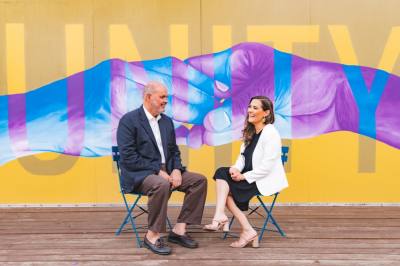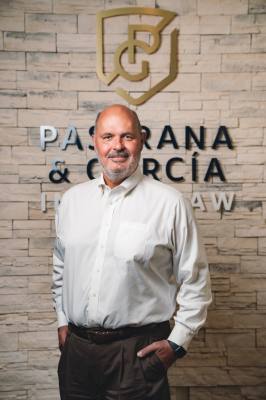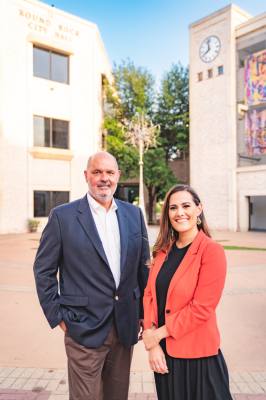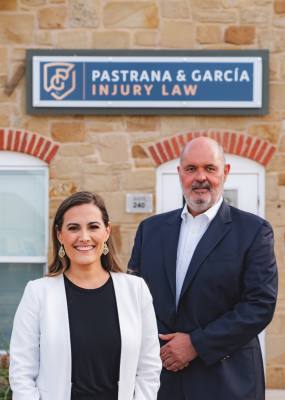When it comes to personal injury law in Texas, Pastrana & Garcia Injury Law brings a refreshing perspective that centers on compassion and dedication. The company takes pride in advocating for the Hispanic community, with a fully bilingual staff, ensuring seamless communication for a diverse range of Texan clients.
In an interview with Community Impact, partners Raúl Steven Pastrana and Cristina García-Chappell opened up about how their firm has been transforming lives, one case at a time.
How do your core values of empathy and experience manifest in your firm's approach to serving clients?
Pastrana: First and foremost, we're about quality and not quantity. We are selective about the kinds of cases we take and we provide one-on-one personal service that some of these larger firms can’t. We pride ourselves on the service and the development of a relationship with the client. I think that's why we have many five-star ratings by our clients. We get to know their case, their family and history. Many of these people have had their lives turned upside down, particularly in death cases, and they need a lot of hand-holding and guidance to get through not just the legal process but also life's challenges.
What makes your approach to client relationships stand out from other injury law firms in Austin?
García-Chappell: We build a personal rapport with our clients, treating them as if they were part of our own family. There are instances where we remain connected to clients even years after resolving their cases. We view our clients as not just cases, but as cherished friends and family members.
Our philosophy is especially significant in the realm of personal injury law, which is typically dominated by large firms. Unlike these giants with extensive teams, we remain small yet effective. Our clients know they can turn to us not only for legal matters but also for personal issues. We understand that a personal touch, akin to that of a family member, can make all the difference, distinguishing us from the impersonal experiences some encounter.
How does your firm ensure that a client's immigration status does not impact their ability to seek legal representation for a personal injury case?
Pastrana: The law is very clear that immigration status does not play any part in their case. It's been decided it's prejudicial and we tell the clients not to worry about it. It's not going to affect your immigration status. It can affect certain parts of the case but we absolutely demand that the defendants not ask questions about our clients' status.
García-Chappell: We understand that one's legal status or possession of documents does not determine the extent of pain and suffering experienced after an accident. It's important to note that regardless of being a tourist, en route to Canada, or simply passing through U.S. soil, the rights remain consistent for everyone. Unfortunately, there are instances where individuals fail to grasp this, leading to discrimination against those who might not appear to possess proper documents. This misconception can lead them to believe these individuals are ineligible to file claims due to their lack of documentation.
Our goal is to challenge these stereotypes through diligent work and in deposition settings where we prevent defense attorneys representing insurance companies from delving into our clients' backgrounds.
How does your contingency fee structure work, and what are the client benefits?
García-Chappell: In personal injury law, we operate on a contingency fee basis, which means attorneys are compensated based on a percentage of the amount recovered for the individual.
Our standard rate is one-third of the recovery, applicable when no litigation is necessary. If we can reach an agreement with the insurance company and the client's approval without needing to go to court, the fee remains at one-third. However, in cases where litigation becomes inevitable due to unresolved discrepancies, we require the client's permission and our fee adjusts to 40%.
Additionally, we are committed to pro bono work and to assist families in need on a case-by-case basis. We have waived fees for deserving families in the past and continue to do so when the situation calls for it. We maintain a strong relationship with the Mexican Consulate, collaborating closely to address distressing cases that require our help. This approach is determined by the unique circumstances of each case, ensuring that we provide assistance where it is most needed.
What's your perspective on dealing with insurance companies in personal injury cases?
Pastrana: We aim to educate our clients and prospective clients about how insurance companies operate with the primary goal of collecting premiums and minimizing payouts. Their profit motive drives their actions, which often aren't geared towards benefiting the injured parties. While this might sound like a broad assertion, it holds significance.
We provide complimentary consultations to inform individuals about their rights and the do's and don'ts [with insurance companies]. Even if we're not the right fit for a specific case, we engage with them, advising on steps to take. Essentially, when faced with an accident, seeking consultation with an attorney is wise to fully comprehend one's rights and navigate the process of making claims against insurance companies.
What steps should someone take immediately after being involved in an accident?
García-Chappell: I would say always take care of your health first. Don't wait to talk to an attorney before seeing a doctor because sometimes people think, ‘I'm just waiting for you to tell me to go to the ER due to this terrible headache.’ I'm like, ‘No, I'm not a doctor. You should go ahead and seek medical attention. You could potentially have a traumatic brain injury (TBI), and there's no need to wait for us.’
However, when it comes to reaching out to the insurance company or signing documents, aside from the immediate police report that's necessary, it's advisable to hold off. You're obligated to provide your statement to the police, no questions asked. But when it comes to communicating with the insurance company, keep in mind that they are a for-profit entity. It's best to wait until you've consulted with an attorney to fully understand your rights and potential recovery options.
Pastrana & Garcia Injury Law serves communities across Texas, including Pflugerville, Round Rock, Georgetown, Leander, Taylor, Hutto, Kyle, Bastrop and Lockhart. Visit the main office at 305 N Heatherwilde Blvd., Ste. 240, in Pflugerville.
Need legal guidance after an accident? Reach out for a free consultation and understand your rights.
The above story was produced by Holly Galvan with Community Impact's Storytelling team with information solely provided by the local business as part of their "sponsored content" purchase through our advertising team.
Select your community
Support Us
News
- Austin Metro
-
Houston Metro
- Houston Metro Home
- Bay Area
- Bellaire | Meyerland | West University
- Conroe | Montgomery
- Cy-Fair | Jersey Village
- Cypress
- Heights | River Oaks | Montrose
- Katy | Fulshear
- Lake Houston | Humble | Kingwood
- New Caney | Porter
- Pearland | Friendswood | Manvel
- Spring | Klein
- Sugar Land | Missouri City
- The Woodlands
- Tomball | Magnolia
- Dallas | Fort Worth Metro
- San Antonio Metro




